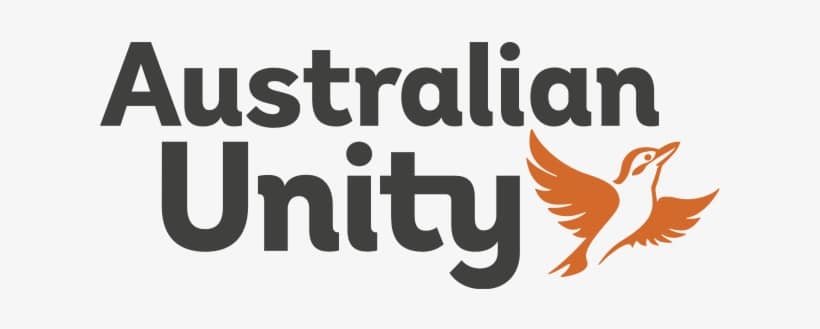Home > Health Insurance > Online Health Insurance
Online Health Insurance
Compare quotes online for your health insurance through Savvy today.
Author
Savvy Editorial TeamFact checked



We’ve partnered with Compare Club to bring you a range of health insurance policies to help you compare them side by side.
Comparing health insurance quotes online makes perfect sense if you’re after the best deal for your policy. You can compare cost, inclusions, exclusions and benefit limits side-by-side to help you make the best decision possible.
Savvy can help you get online quotes from some of Australia’s leading health insurers. Just answer a few simple questions about the health cover you’re after and you could have a range of quotes from our trusted panel of insurers instantly. Start the comparison process through Savvy today before you buy your policy.
How do I compare online health insurance quotes?
The first step before buying health insurance online is to compare your options thoroughly. Some of the ways you can do so include:
Make sure you’re comparing apples with apples
Hospital cover policies come in four different tiers: basic, bronze, silver and gold. Under Australian Government health insurance regulations, each level of cover has to offer a set number of treatments, which are known as clinical categories.
The cheapest policies available are at the basic level, offering just three clinical categories. The next level, bronze, adds a further 18 clinical categories, and so on until you get to the highest level of cover, gold. These policies cover all 38 clinical categories and offer the highest cover available in Australia (for the highest cost). When comparing policies, make sure you're considering those offering the same level of cover so you know you’re comparing apples with apples.
The levels of extras cover aren’t as clearly defined as those for hospital cover, generally ranging from cheaper policies with less coverage to more expensive ones with a greater number of benefits and higher claim limits. As such, it’s just as crucial to check that you're comparing policies of a similar level. Since extras policies aren’t as tightly regulated as hospital cover policies in terms of what they’re required to offer, there are more differences between providers to compare.
Also, make sure you’re comparing policies designed for the same category of customer, such as singles, couples, single parents or families. Naturally, a family policy will cost more than a singles policy, so make sure the policies you’re comparing are of the same type.
Compare the benefit amounts for each category
When comparing extras policies, look at how much you’ll be able to claim for each category of treatment. For example, while one policy may allow you to claim $300 for optical services each year, another may offer $450. It’s also important to compare lifetime benefit limits and consider whether these are sufficient for your current known health needs.
Compare excess and co-payment amounts
If you’re comparing hospital cover, look at the excess amounts which are available and any co-payments necessary. These can range from zero to $750 for excess amounts. For example, a particular silver hospital cover policy may be available with excess amounts of $250, $500 and $750, with the policy with a $750 excess being the cheapest. Consider whether the difference in premium price is worth paying if you do end up admitted to hospital.
Also, compare the co-payments you may be required to pay if you do have a hospital stay. Some policies may require $100 a night, capped at $700, for example. However, it’s important to note that excesses and co-payments won’t always be charged by health insurers.
Inclusions and exclusions
It’s well worth reading the fine print of each policy and finding out what is and isn’t included in the insurance you’re buying. Above all else, it’s essential to have a health insurance policy with coverage in areas which may apply to you.
Additionally, some funds may only offer certain benefits if you use an affiliated healthcare provider, which could be inconvenient if there are no such providers in your area. Others may have rules about pre-existing conditions that you should be aware of before buying the policy.
Waiting periods
Waiting periods for different levels of hospital cover are mandated by law, but there are no such restrictions on extra cover policies. Some funds may offer to waive certain extras waiting periods, or even offer free weeks of cover, to attract new clients. Compare such offers carefully, as they may provide great value to you if you’re considering swapping health fund providers.
How do I buy health insurance online through Savvy?
Savvy makes it simple for you to compare health insurance providers. Just answer a few simple questions about the policy you’re after and your basic details and within minutes you’ll be presented with a range of quotes to compare from our panel of leading health insurance providers.
Once you’ve compared policies and decided which one appears to offer you the best deal, you’ll have two options:
- Go through with the purchase and buy the policy you’re interested in. Follow any requirements, such as filling out a further application form.
- Ask for a call-back and you’ll be able to speak to a health insurance expert who can help talk you through your policy options.
Once you’ve bought your health insurance cover online, your health insurance specialist will assist you in swapping funds. Switching health funds online is a simple process which is usually completed within a day, during which you won’t be left uninsured.
Types of health insurance
This can help you pay for medical treatment if you need to be admitted to hospital. It can help cover the cost of your admission or accommodation and the fees charged by doctors, surgeons and anaesthetists. It can also cover other costs associated with a stay in a private hospital.
This helps cover the costs of health care treatments outside a hospital setting which aren’t covered by Medicare. This can include major and minor dental treatment, orthodontics, hearing aids, physiotherapy, glasses, contact lenses and podiatry (in most cases with annual limits).
This is a standard health insurance policy designed for a single person, rather than being tailored to cater to the needs of a couple or family. It may include hospital cover plus extras, or either of these types of insurance on their own, depending on what you're after for your health cover.
A family health insurance policy is designed for a family unit including dependent children who may reach up to 31 years of age with some insurers. It offers private health insurance suitable for the whole family and may include shared limits for all members included in your policy.
A health insurance policy aimed at seniors is designed to appeal to people who are in the second half of their life. These are often specific Silver Plus policies that offer the same cover as other health insurance policies, with the exception that pregnancy and childbirth cover may not be included.
Visitors who are in Australia on a temporary basis for travel, work or study may be able to take out Overseas Visitors Health Cover (OVHC). Many visas issued in Australia come with a requirement to take out this type of insurance, which covers visitors who may not be covered by Medicare.
Ambulance cover is generally available either packaged into your private health insurance or on its own as a separate policy or subscription. By having this protection, you could be covered for all eligible ambulance travel in Australia (subject to your insurer's terms and conditions).
The cheapest and most barebones form of private hospital insurance, this can include cover for rehab, in-hospital psychiatric services and palliative care. Having this policy will enable you to avoid paying the Medicare Levy Surcharge (MLS) and Lifetime Health Cover (LHC) loading.
Bronze hospital cover is a step up from basic insurance, including 18 further clinical categories such as ear, nose and throat, bone, joint and muscle, digestive system, joint reconstructions, gynaecology and chemotherapy, radiotherapy and immunotherapy for cancer.
Silver hospital cover is the second-most expensive type of policy and offers the second-most clinical categories. On top of what's offered by basic and bronze cover, it also includes heart and vascular system, lung and chest, blood, hearing device implantation and dental surgery.
The highest level of private hospital insurance available in Australia, gold policies can offer cover for pregnancy and birth, weight loss surgery, assisted reproductive services and insulin pumps on top of all the categories provided by silver, bronze and basic hospital insurance.
Why compare health insurance through Savvy?
100% free service
Our comparison tool doesn’t cost you a cent, allowing anyone to compare offers from trusted insurers around Australia for free.
Compare policies online in one place
You can consider the inclusions, premiums, benefits and other key factors easily with us, whether you’re at home or on the go.
Trusted insurers
Considering offers from trusted insurance providers can help give you peace of mind that you’re comparing high-quality policies.
Frequently asked questions about buying health insurance online
Yes – most health insurance funds allow a cooling-off period of either 21 or 30 days. During this period, you can cancel your policy and receive a full refund, provided that no claim has been made against the policy you wish to cancel.
Many health funds advertise their best offers online through comparison websites, which is why it’s a great idea to check in with Savvy regularly to compare health policies. This way, you can make sure you have the most suitable policy for your needs among our panel of insurers compared to other online offers.
Yes – almost all health funds allow you to make a claim online, either through their website or mobile app. Most funds make this process quick and simple for their customers. Additionally, if your healthcare provider has a HICAPS terminal, you may be able to make your claim at the time of payment and only pay any gap remaining, rather than the full amount required for payment. HICAPS stands for Health Industry Claims and Payments Service and is an electronic claims system that many healthcare providers now use for online payments and refunds.
Some health funds may offer a discount if you set up an autopay through your bank to pay your premiums automatically. This can amount to between 2% and 5% of the premium price, depending on your insurer, so it's well worth checking with them to see whether such discounts are available.
Helpful health insurance guides
Looking for health insurance to cover your condition or treatment?
Read one of our helpful guides on a range of different ailments and potential hospital or extras treatments to help you find out if they're covered.
Disclaimer:
Savvy is partnered with Compare Club Australia Pty Ltd (AFS representative number 001279036) of Alternative Media Pty Ltd (AFS License number 486326) to provide readers with a variety of health insurance policies to compare. Savvy earns a commission from Compare Club each time a customer buys a health insurance policy via our website. We don’t arrange for products to be purchased from these brands directly, as all purchases are conducted via Compare Club.
Savvy’s comparison service is provided by Compare Club. Compare Club compares selected products from a panel of trusted insurers and does not compare all products in the market.
Any advice presented above or on other pages is general in nature and doesn’t consider your personal or business objectives, needs or finances. It’s always important to consider whether advice is suitable for you before purchasing an insurance policy.
For any further information on the variety of insurers compared by Compare Club or how their business works, you can read their Financial Services Guide.










